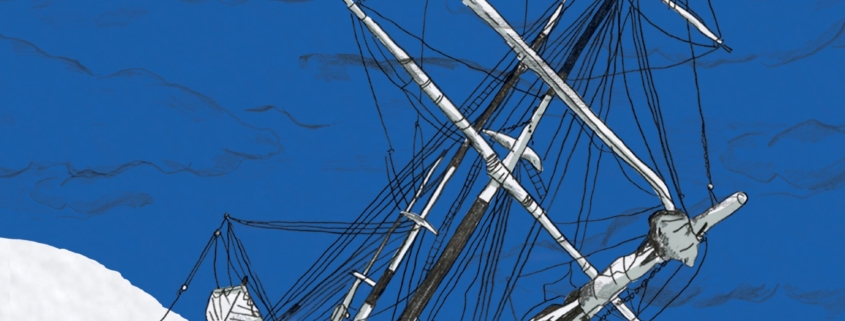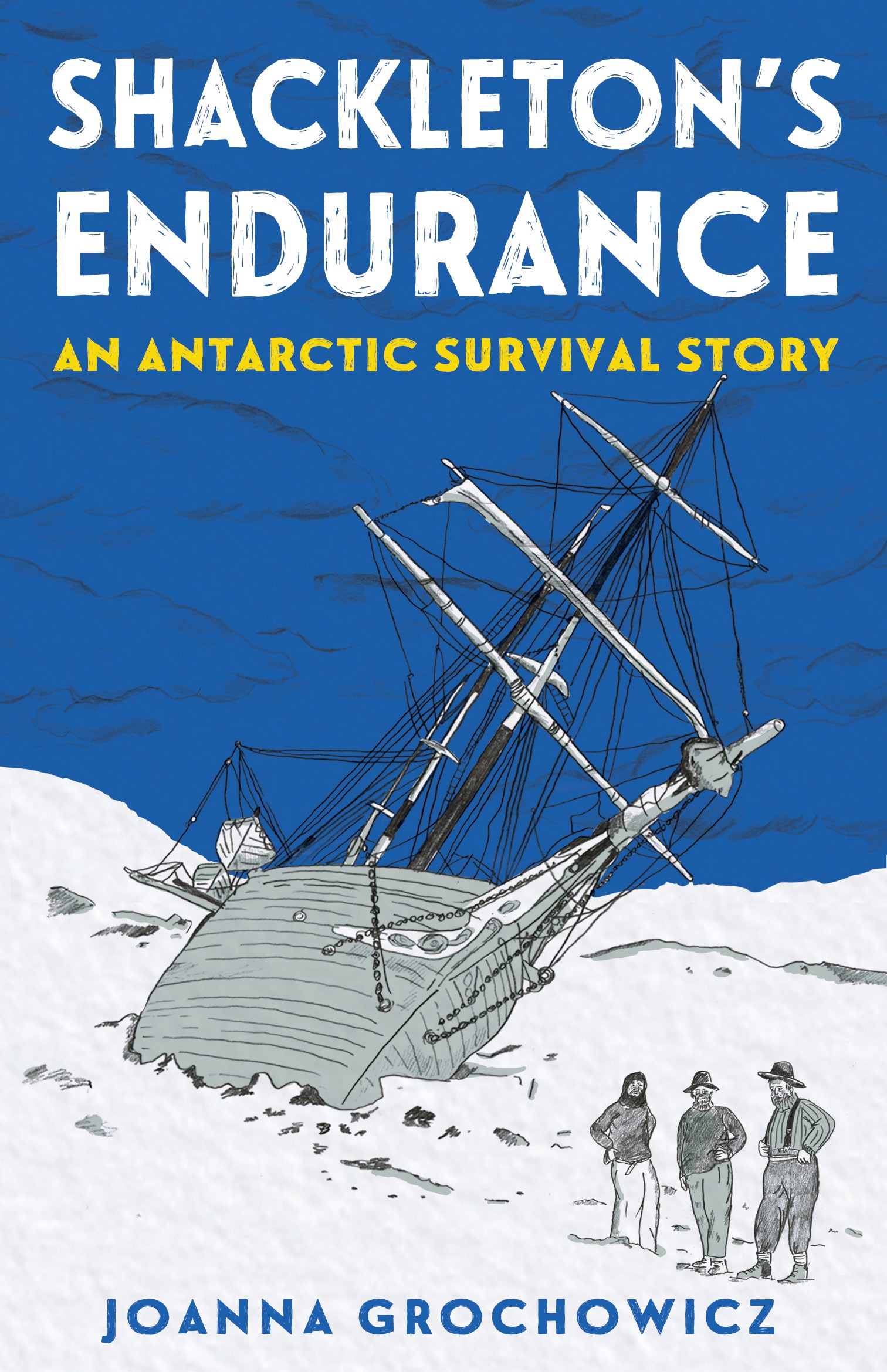Shackleton’s Endurance by Joanna Grochowicz
Many of us will be familiar with Shackleton and his expeditions. Author Joanna Grochowicz reveals more about her research and the details of her book, Shackleton’s Endurance, An Antarctic Survival Story.
‘Did this really happen?’
The question comes up almost every time I share my stories of early Antarctic exploration in schools. The physical peril faced by these tireless adventurers, the unimaginably harsh polar conditions, the unspeakably awful food, the wildly inadequate clothing – all of it can appear utterly outlandish or pure exaggeration.
Historical accuracy is important for me as a writer of narrative non-fiction. I feel an immense responsibility to my readers to present information that is factually correct. But I also feel a responsibility to the historical figures I am portraying in my books, to honour their achievements by telling a story that reveals their humanity, fallibility, and flaws, and not just their heroism.
The research for my novels has taken me from New Zealand to Norway, Tasmania, the United Kingdom, and Antarctica. What is fundamental for me is seeking out as many primary sources as possible in archives, library and museum collections, and less accessible but all important private family records. Only once I have a chorus of voices do I feel the truth begins to round out.
It is not just the story of the well-known leaders that I am interested in telling; I want to expose the experiences of the ordinary men who took part in the early Antarctic expeditions. What did the huts smell like? What does frostbite feel like? Did penguin meat taste nice? How do you go to the loo in minus 20? I believe that these are important questions to answer.
Of course, not all of it is good clean fun. Filth, blood and guts and bad behaviour make it into my books, and death plays its part too – but it’s put in context. True stories about real people undertaking things that are difficult and dangerous are critical for children’s social and emotional development. Certainly we should not shy away from exposing children to stories where failure is a possibility. Ability to learn from failure is an important springboard for improvement, refinement and excellence.
Diaries and letters are a brilliant source of humour and everyday details that lend authenticity and texture to the narrative. It’s also the quirky details presented in the narrative that make my stories accessible and compelling for young people and adults alike. I’ve been fortunate in my research to have found a wealth of overlooked information. It’s a delight to be able to present relatively unknown material and to find new elements that have been left out of more conventional accounts.
Geographical veracity is important for me too. For my latest book, Shackleton’s Endurance, I spent a month in Antarctica and undertook a week-long Southern Ocean crossing. I wanted to get a sense of emptiness and vastness. I think geographical elements anchor the story. Certainly for me, the Antarctic landscape needs to be treated almost as a character in its own right.
We take so much for granted when we read historical novels, but all those details and texture take so much time for the writer to nut out. Recently I’ve spent a bit of time researching birch bark canoes for my next book about the Arctic. Very little of what I have found out will find its way into the story. But research is a bit like an iceberg – most of it is underwater! Only 10% ends up on the page. But without the 90% holding it up, it wouldn’t float.
It’s the ultimate pay-off when I get asked the question: ‘Did this really happen?’ It allows me to highlight the central importance of research in my work and answer: ‘Yes! this really did happen.’







Leave a Reply
Want to join the discussion?Feel free to contribute!